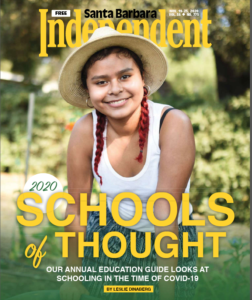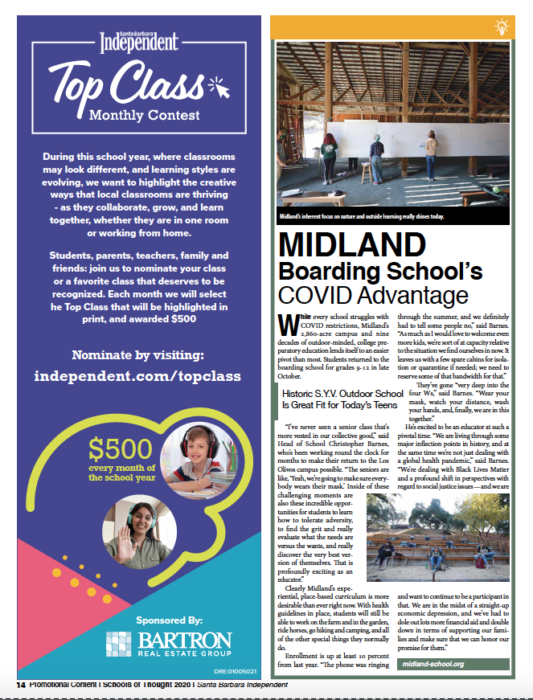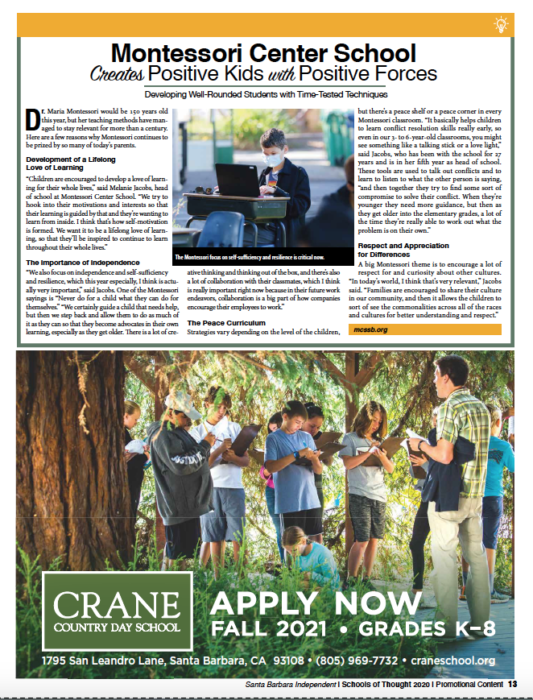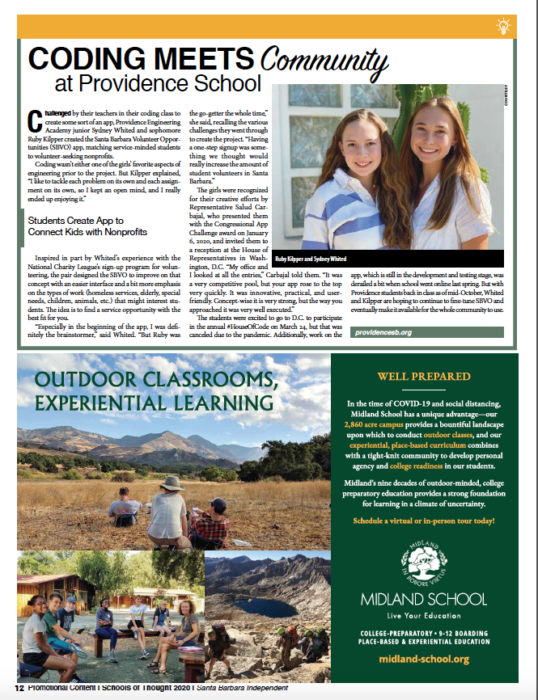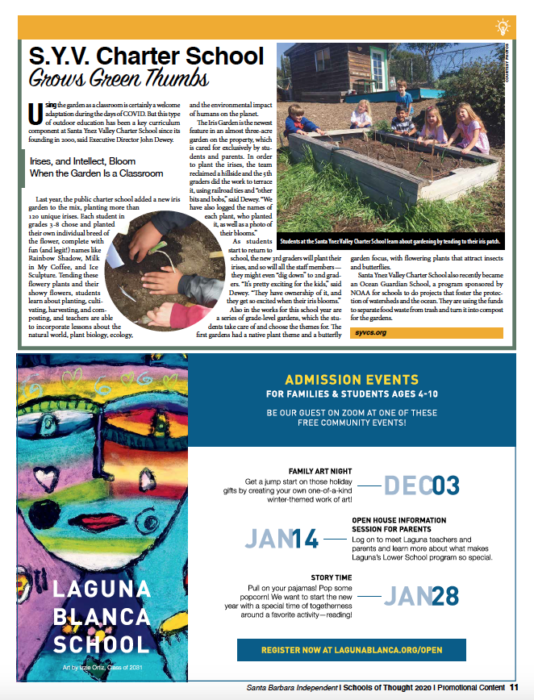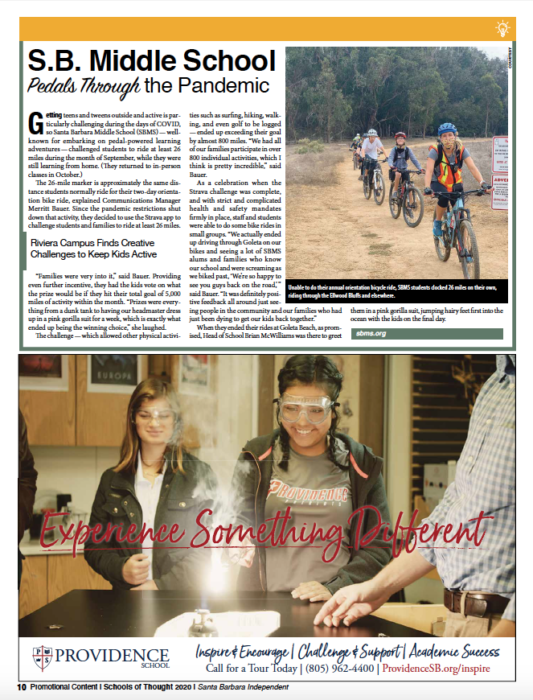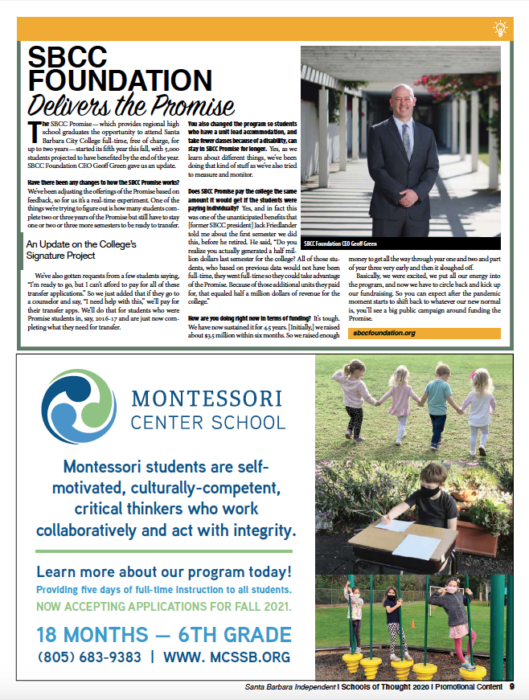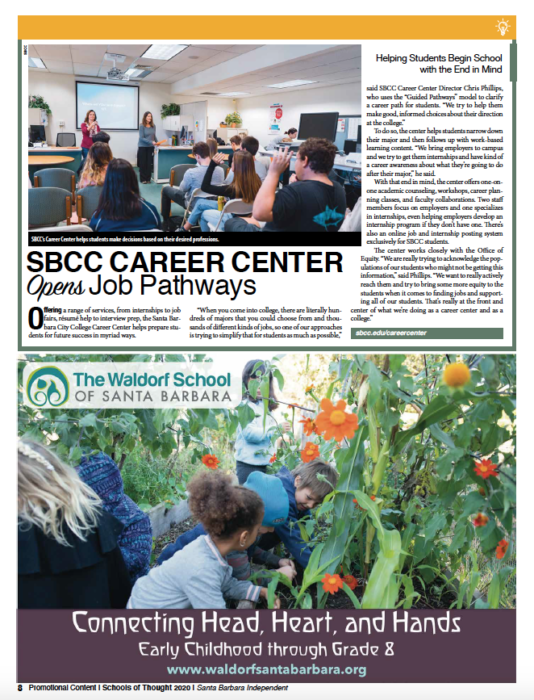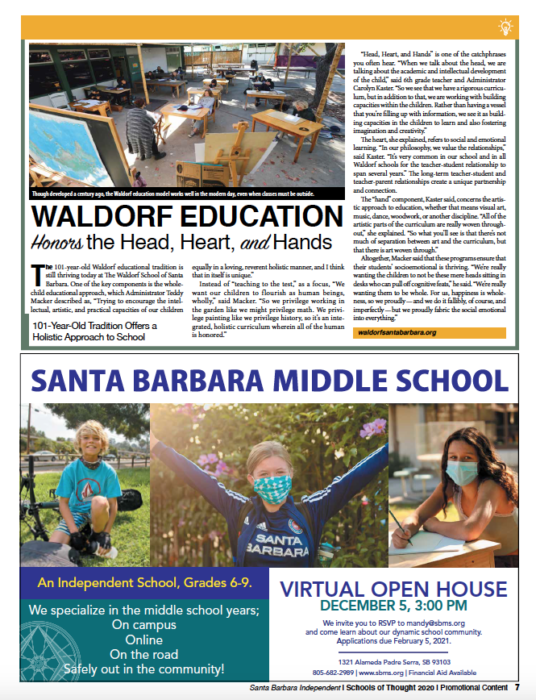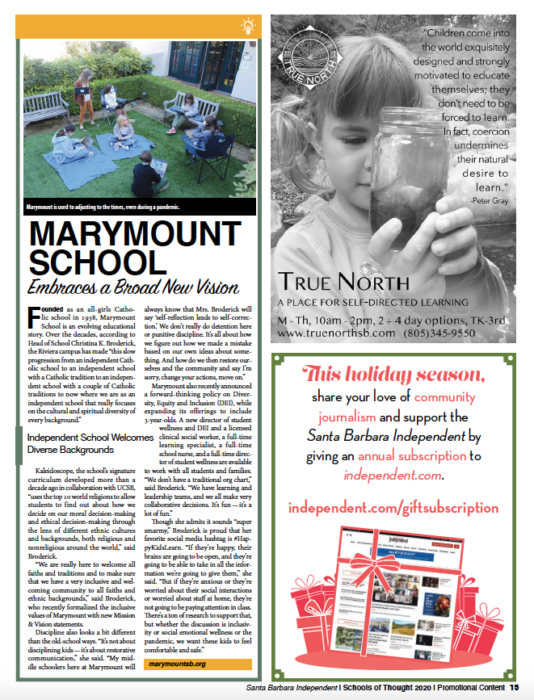
Marymount School Embraces a Broad New Vision, originally published in Santa Barbara Independent on November 19, 2020.
Independent School Welcomes Diverse Backgrounds
Founded as an all-girls Catholic school in 1938, Marymount School is an evolving educational story. Over the decades, according to Head of School Christina K. Broderick, the Riviera campus has made “this slow progression from an independent Catholic school to an independent school with a Catholic tradition to an independent school with a couple of Catholic traditions to now where we are as an independent school that really focuses
on the cultural and spiritual diversity of every background.”
Kaleidoscope, the school’s signature curriculum developed more than a decade ago in collaboration with UCSB, “uses the top 10 world religions to allow students to find out about how we decide on our moral decision-making and ethical decision-making through
the lens of different ethnic cultures and backgrounds, both religious and nonreligious around the world,” said Broderick.
“We are really here to welcome all faiths and traditions and to make sure that we have a very inclusive and welcoming community to all faiths and ethnic backgrounds,” said Broderick, who recently formalized the inclusive values of Marymount with new Mission
& Vision statements.
Discipline also looks a bit different than the old-school ways. “It’s not about disciplining kids — it’s about restorative communication,” she said. “My middle schoolers here at Marymount will always know that Mrs. Broderick will say ‘self-reflection leads to self-correction.’ We don’t really do detention here or punitive discipline. It’s all about how we figure out how we made a mistake based on our own ideas about something. And how do we then restore ourselves and the community and say I’m sorry, change your actions, move on.”
Marymount also recently announced a forward-thinking policy on Diversity, Equity and Inclusion (DEI), while expanding its offerings to include 3-year-olds. A new director of student wellness and DEI and a licensed clinical social worker, a full-time learning specialist, a full-time school nurse, and a full-time director of student wellness are available
to work with all students and families.
“We don’t have a traditional org chart,” said Broderick. “We have learning and leadership teams, and we all make very collaborative decisions. It’s fun — it’s a lot of fun.”
Though she admits it sounds “super smarmy,” Broderick is proud that her favorite social media hashtag is #HappyKidsLearn. “If they’re happy, their brains are going to be open, and they’re going to be able to take in all the information we’re going to give them,” she
said. “But if they’re anxious or they’re worried about their social interactions or worried about stuff at home, they’re not going to be paying attention in class. There’s a ton of research to support that, but whether the discussion is inclusivity or social emotional wellness or the pandemic, we want these kids to feel comfortable and safe.”
Originally published in the Santa Barbara Independent on November 19, 2020. To read the section as it appeared in print, please click here.

